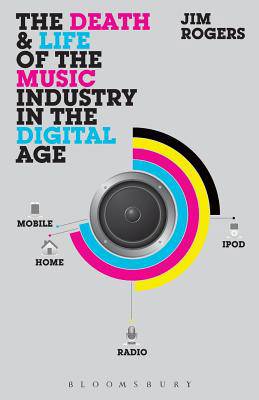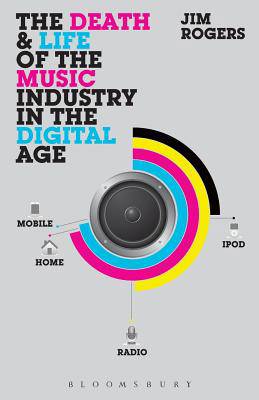
Bedankt voor het vertrouwen het afgelopen jaar! Om jou te bedanken bieden we GRATIS verzending (in België) aan op alles gedurende de hele maand januari.
- Afhalen na 1 uur in een winkel met voorraad
- In januari gratis thuislevering in België
- Ruim aanbod met 7 miljoen producten
Bedankt voor het vertrouwen het afgelopen jaar! Om jou te bedanken bieden we GRATIS verzending (in België) aan op alles gedurende de hele maand januari.
- Afhalen na 1 uur in een winkel met voorraad
- In januari gratis thuislevering in België
- Ruim aanbod met 7 miljoen producten
Zoeken
€ 64,45
+ 128 punten
Uitvoering
Omschrijving
The Death and Life of the Music Industry in the Digital Age challenges the conventional wisdom that the internet is 'killing' the music industry. While technological innovations (primarily in the form of peer-to-peer file-sharing) have evolved to threaten the economic health of major transnational music companies, Rogers illustrates how those same companies have themselves formulated highly innovative response strategies to negate the harmful effects of the internet. In short, it documents how the radical transformative potential of the internet is being suppressed by legal and organisational innovations. Grounded in a social shaping perspective, The Death and Life of the Music Industry in the Digital Age contends that the internet has not altered pre-existing power relations in the music industry where a small handful of very large corporations have long since established an oligopolistic dominance. Furthermore, the book contends that widespread acceptance of the idea that online piracy is rampant, and music largely 'free' actually helps these major music companies in their quest to bolster their power. In doing this, the study serves to deflate much of the transformative hype and digital 'deliria' that has accompanied the internet's evolution as a medium for mass communication.
Specificaties
Betrokkenen
- Auteur(s):
- Uitgeverij:
Inhoud
- Aantal bladzijden:
- 248
- Taal:
- Engels
Eigenschappen
- Productcode (EAN):
- 9781623560010
- Verschijningsdatum:
- 9/05/2013
- Uitvoering:
- Paperback
- Formaat:
- Trade paperback (VS)
- Afmetingen:
- 137 mm x 213 mm
- Gewicht:
- 340 g

Alleen bij Standaard Boekhandel
+ 128 punten op je klantenkaart van Standaard Boekhandel
Beoordelingen
We publiceren alleen reviews die voldoen aan de voorwaarden voor reviews. Bekijk onze voorwaarden voor reviews.









